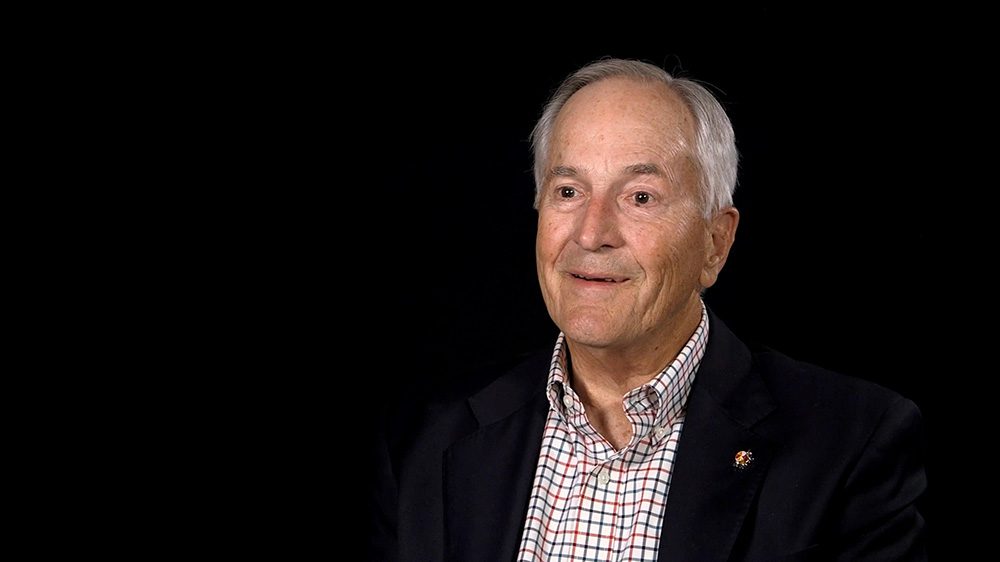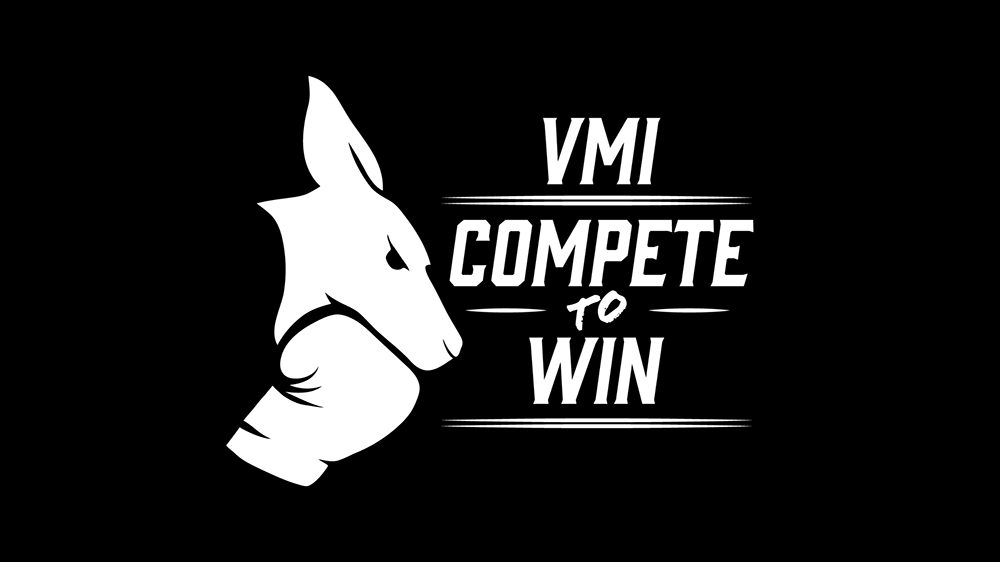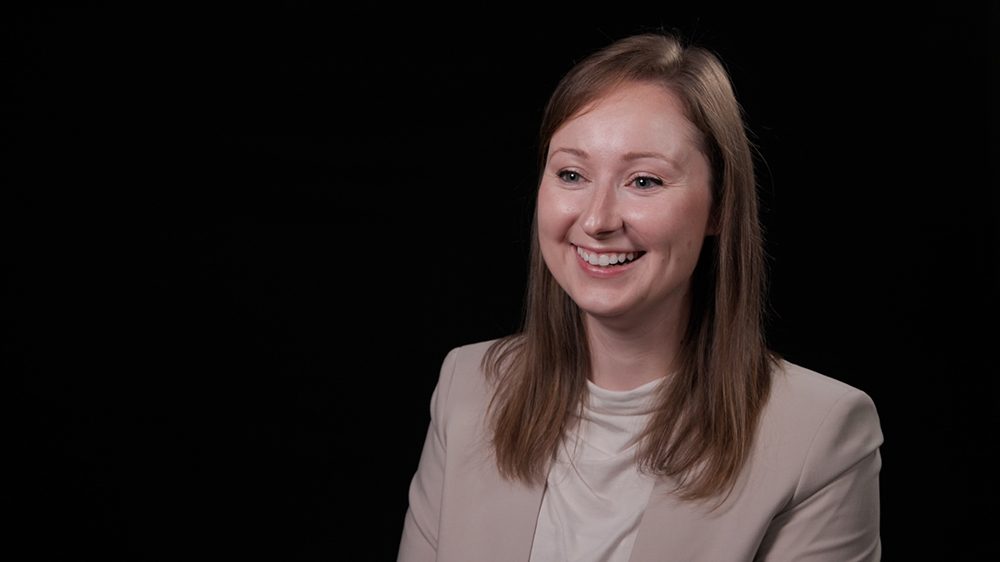“It’s amazing how many things you learn at VMI that apply for the rest of your life. And look at the number of brother rats and friends that you have for life. … There’s no amount of money that can replace that.” That’s what Jim Henry ’68, who recently served as Hampton Roads Region XIII regional director and concluded two terms on the Alumni Association Board of Directors, has to say about the value of his VMI experience.
Henry, who graduated from VMI with a Bachelor of Science degree in civil engineering and served in the U.S. Army Corps of Engineers with tours both stateside and in Vietnam before going on to earn a Master of Business Administration degree from the University of Virginia. After that, he undertook a long career in sales and marketing for IBM.
Along the way, Henry carried the lessons of VMI with him wherever he went—chiefly, how to treat others. He recounted that at IBM, just like everywhere else in life, the quality of leadership could vary widely. “I learned more from the bad managers than I did from the good managers I had because I learned what not to do,” he commented. “And I can remember with the Rat Line, as I was straining, and somebody was giving me a hard time, I was thinking to myself, ‘I’m not going to do this to a rat next year. This is not the way I am going to treat anyone.’ You want people to respect you. As long as you treat people fairly, you criticize them constructively, and you’re consistent in your approach, you’ll never have problems.”
These lessons were just as valuable when Henry became a manager himself. “Just like being a platoon leader at VMI or a company commander, you learn how to work within the system and maximize the talent that you have,” he explained. “So besides the internal stick-to-itiveness that I had, and we all have, from VMI, you learned the results very quickly of sticking to things and doing your best. You want to make the best out of every situation, and you want to maximize your people and the results they’re making.”
Henry came to VMI from his native Franklin, Virginia, having known several VMI alumni from the area while he was growing up. Sol Rawls Jr. ’40 and John Camp, Class of 1905, were friends of his father, and so was William “Bill” Rawlings, Class of 1935, a longtime Virginia state senator. Yet another influence was Bob Lambert ’52, Henry’s Scoutmaster, whom Henry described as “probably the most influential person I ever knew, other than my own parents.”
While Henry was in high school, Rawlings brought Henry and Rawlings’ nephew, Edgar Rawlings Jones ’67, to post for a visit. Wanting to follow his father, who worked for what’s now the Virginia Department of Transportation, into the civil engineering field, Henry decided on the day of his first visit that VMI was the school for him.
“When a young man or young woman graduates from VMI, they have a foundation like no other.”
Jim Henry ’68
As a cadet, Henry didn’t struggle as much with the Rat Line as others did because his father was a strict disciplinarian. Academics, though, were another matter. “It was quite challenging to balance civil engineering where I was taking anywhere from 18 to 21 hours,” he related. “Most of the time, we were going to class 5-and-a-half days a week. I had drafting and all kinds of civil engineering courses that required outside weekend kind of work, so I didn’t come up for air very often.”
The quality of VMI’s civil engineering program was brought home to Henry, though, when graduate school recruiters visited during his 1st Class year. A professor from a top school told the group, “Don’t worry if your grade point average is only 2.8 because we add .5 to your grade point average to compare you with our students because most of our students go five years to get their BS in civil engineering. You guys are doing it in four, along with a lot of other things.”
Looking back, Henry appreciates the rigor. “I think I probably got as good an education in civil engineering here as I could have gotten anywhere in the country,” he stated.
Even as a new graduate, Henry made an effort to give back to VMI, first by attending chapter events and then, as his children got older, by becoming involved as a chapter leader and eventually serving on the VMIAA board. In addition, he and his wife, Susan, have established a family scholarship at VMI.
Supporting VMI is important, he believes, because VMI’s unique educational system provides such an excellent foundation for future success. “When a young man or young woman graduates from VMI, they have a foundation like no other,” he stated. “You see it when you get out into the working world or when you go to graduate school—how much more you possess as a VMI graduate than the person on your left or the person on your right.”
The Henrys support other schools and other causes—but VMI has always been a top priority. “I think VMI produces a product like no other,” said Henry. “And I hope VMI will be able to do that forever.”
-

Victoria Ferris Social Media and Communications Strategist
The social media and communications strategist is responsible for creating compelling, audience-appropriate, multi-channel content for social media, and for monitoring the VMI Alumni Agencies' social media accounts. The strategist supports all communications efforts, including email marketing deployment and training, website updating, and video editing.

Mary Price Development Writer/Communications Specialist
The development writer plays a key role in producing advancement communications. This role imagines, creates, and produces a variety of written communication to inspire donors to make gifts benefiting VMI. Utilizing journalistic features and storytelling, the development writer will produce content for areas such as Annual Giving, stewardship, and gift planning.




